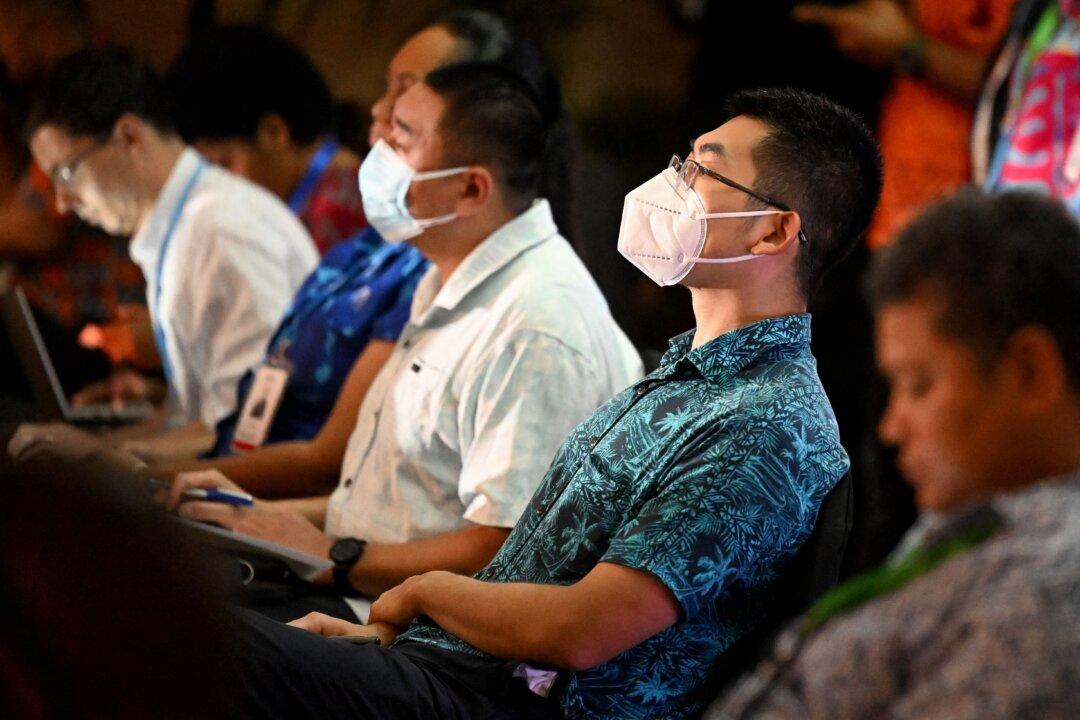Two Chinese officials were discovered secretly attending an address by U.S. Vice President Kamala Harris to the Pacific Islands Forum.
The officials were sitting with the media contingent before a reporter from The Guardian newspaper recognized the two males. When questioned on whether they were representing Xinhua News Agency or the Chinese Embassy, one man just shook his head.





